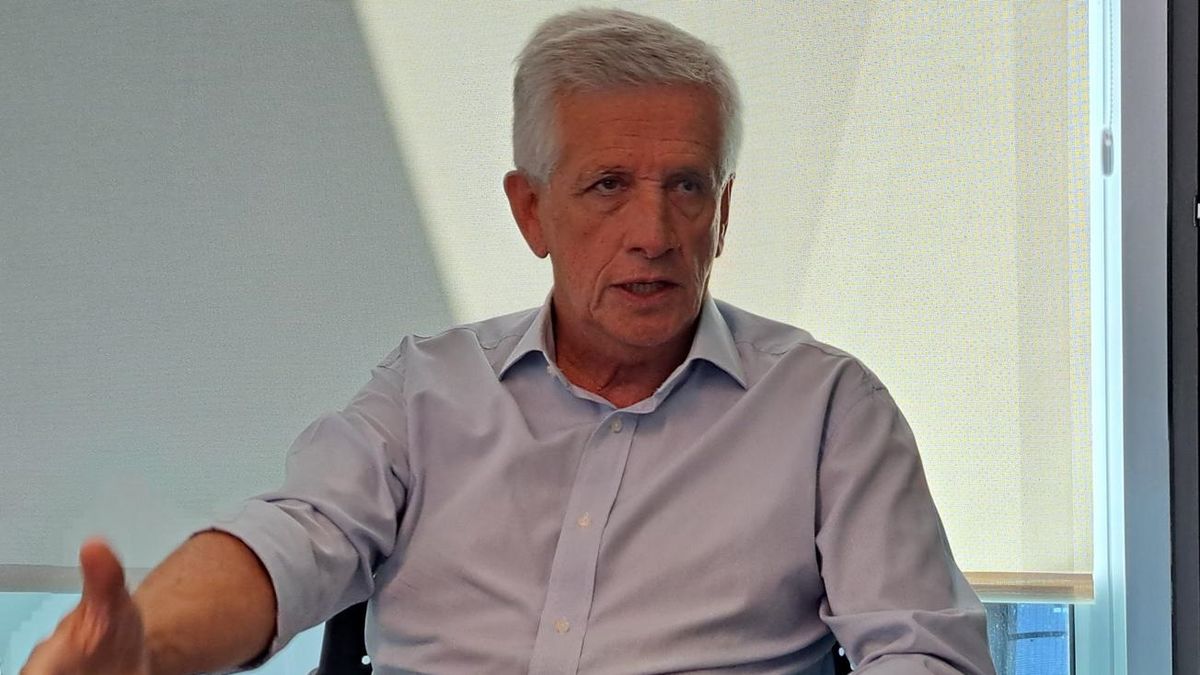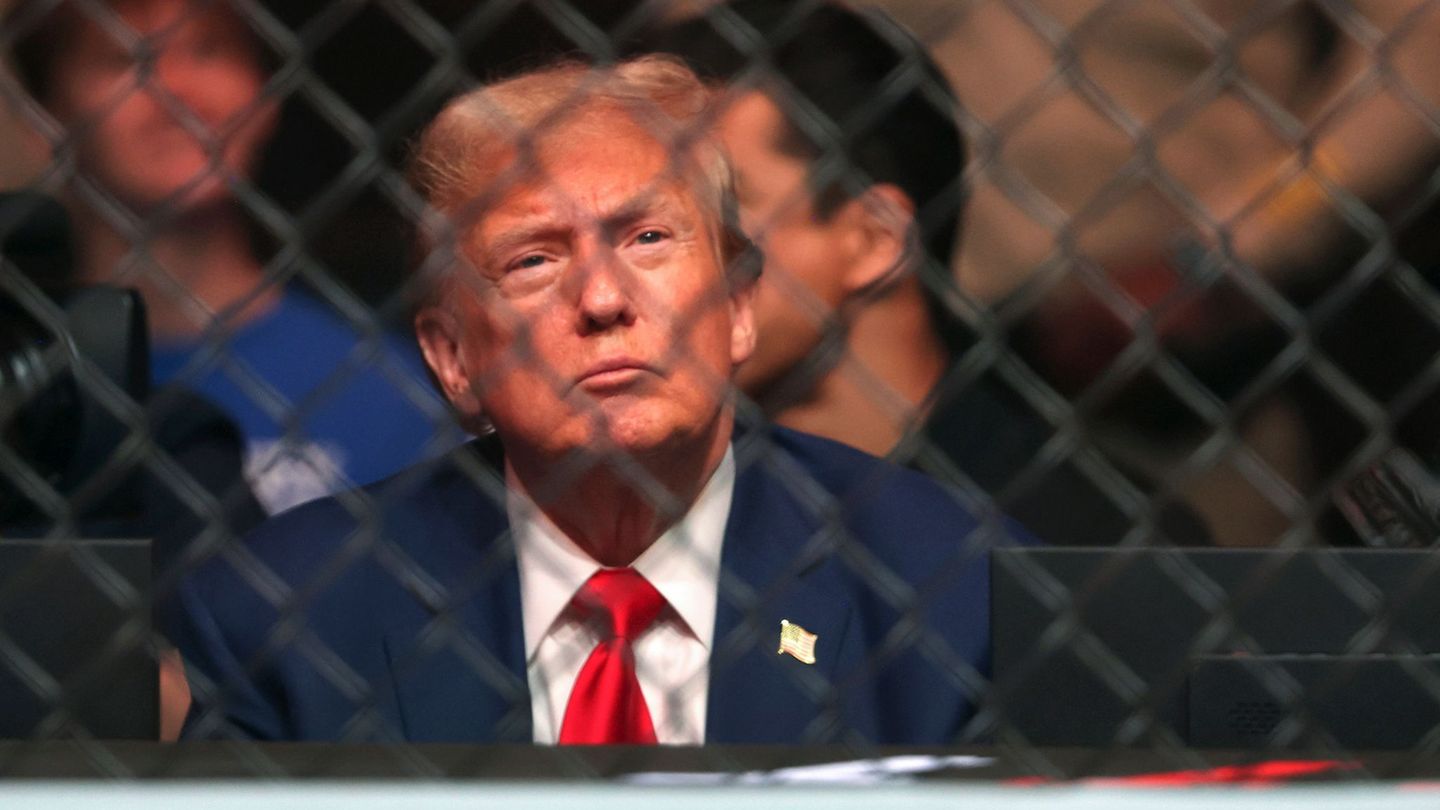-There is an issue that is always on the table and that is what has to do with economic policy. This government has been reasonably successful in reducing the fiscal deficit Until now, we will see how the five-year period ends. But there we believe that it is a very important issue when we see that in the Argentina are considering having zero fiscal deficit. Why not in Uruguay go that way too? Instead of reducing it, we propose a reduction until we have no fiscal deficit, that is, a reduction in public spending, greater efficiency also in the State and that seems to us to be a very important issue.
The theme of foreign trade and international insertion is a key issue also because the underlying discussion is about how we recover the sovereignty. Because today we cannot advance trade agreements with China or with other countries, because the Mercosur It works like a corset, but it does not achieve, for example, closure from the agreement with the European Union. So it seems to us that there is a very important issue for a country with an economy of our size, where increasing foreign trade, increasing the international institution, is absolutely fundamental.
Then there is another issue, that of education. Looking to the future, it is also very important from the private sector Consider something more professional, more innovative, in contact with academia, with the research sector. Not only pose challenges for the State, but also for ourselves, it seems to us that this is a change. There are at least two popular queries centers for which signatures are being collected. One has to do with the social security reform and the other is the one that has to do with the debts of natural persons.
“The path is not the plebiscite”
-What is your opinion about these initiatives?
-We were promoting the social security reform that was carried out, we participated in the commission of experts and then in general terms we supported the law that ended up being approved. Beyond details or particular points of the writing, we support it in general terms. We understand that this initiative is very bad, because it is going back in time, because it affects the personal savings of the workers, because it compromises the financial stability and because it also seems to us that it would take away resources for other things that Uruguay has to be used, as is the issue of early childhood, where we have a very big challenge. So we absolutely disagree with that initiative. And it seems to us that the one that is being promoted from Town meeting Due to the debt issue, it is also not conducive to constitutional reform, which is an issue that should be processed at the legislative level. So we don’t agree either.
-Do you think that proposals of this type will appear, where perhaps politics seeks to ingratiate itself with the people without taking into account the context of the country?
-It is always a risk and it is likely that there may be something of that behind some of these initiatives. That is why it seems to us that the path is not the plebiscite, that the way is the legislative route. And if the majorities come together, the majorities come together. In fact, in this period there was, for example, a law regarding mortgage debts. I may agree or not, but ultimately it is a law that was approved, so that is the way and not the way of plebiscites.
DiegoO Neill Confederation of Business Chambers of Uruguay.png
Diego O’Neill, president of the Confederation of Business Chambers (CEE) of Uruguay and the Chamber of Construction (CCU).
The change of course in Argentina
-During the last few months, the big problem with Argentina was competitiveness and disputes due to price differences. Have there been changes in that sense?
-Yes, that has been improving and probably with the measure that the Argentine government took, with the devaluation which he did as soon as he took office and the inflation, there is a tendency to equate prices. There are still differences, but not at the levels we had before this government took office. It is an issue that we believe will be resolved throughout the year, fundamentally equalizing. In that sense, I believe that the gap and that it will be corrected more over the coming months.
-What do you think of the debts with exporters? Are there signs of correction?
-Yes, there were changes introduced by this administration, but there are still difficulties in collecting debts. It is an issue that must continue to be worked on to normalize it. What is still there is a good disposition on the part of the Argentine government, which there has been, for example, on the issue of dredging 14 meters from the access channel to the Port of Montevideo. Just as that signal was given there, I believe that also in this matter of normalizing the flow of exports, the collection of debts, we are also optimistic.
-Do you think there are some issues in the model proposed by Javier Milei that could be applied in Uruguay?
-I think that the initiative of considering not having a fiscal deficit and balancing the deficit is a measure that we could perfectly adopt in Uruguay. That is to say, we have become accustomed to living with the fiscal deficit that is sometimes higher, it has been around 5%, now it is at 3 or so. There is then the discussion of whether it is a common deficit or a structural deficit, but let’s say, aiming for a zero fiscal deficit, I think it would be a good thing. In the business sector we see it very favorably. That is, the fiscal deficit, ultimately, has an impact on the competitiveness, So, undoubtedly, that is an aspect that would be good to incorporate into Uruguayan politics.
-And what needs to be done for that? Go towards a model based on the free market?
-Since the Confederation we have insisted on the need to reduce the weight of the State for some time. May the reform of the State be the mother of all reforms. But in the four administrations that have passed, there has been very little progress. In the last accountability The reform to the functional career was approved, but it was not implemented. It was approved for a future government to take over. In addition to that, we must debureaucratize, deregulate, and digitize everything possible at the level of State management. Also the symptom that in 2023 we have practically the same number of public officials that we had in 2019. It is a sign that there is no reduction in that sense either. So, we believe that the weight of the State must be reduced, spending must be reduced and that would end up allowing a reduction in the deficit.
Your view on the campaign for the 2024 elections
-The discussion about whether a change of sign in the government implies giving more power to the unions was established in the electoral campaign. Can something like this happen?
-No. Let’s see, governments pass, the business sector remains. You have to work with the relevant government. We have already done it in the 15 years of government of the Wide Front and now in this administration of the new Republican Coalition. So I say, depending on who wins the elections, will be who we have to work with. And then there are greater or lesser coincidences with the administrations, but they are the rules of the political game.
-Do you think there is a rush in the political system due to the campaign?
-The campaign is already launched. In December we warned that it was not good to move forward and that there was still a lot left for this administration. In fact, there is one year left and it seems to us that it is a very important time that, beyond electoral times, is a management year where there are many things that can still be done. We also noticed that we were worried at that time about campaign tone and that was another thing that had to be taken care of. This is worth reiterating, in the sense of urging people to make proposals, to have level discussions and not to fall into aggression or disqualification of opponents, because it seems to us that it deteriorates the climate of democratic coexistence.
-Is there a risk with fake news and extremely polarized campaigns?
-I think it is good to make a call to stay within a level, a height, let’s say political, that has been more of a tradition in Uruguay. Undoubtedly, there are always moments where discussions become tense, but we think it is important to take care of the form, take care of the tone and, above all, think about what the country needs to move forward.
Source: Ambito




